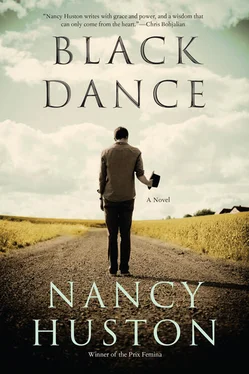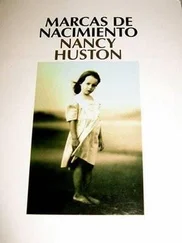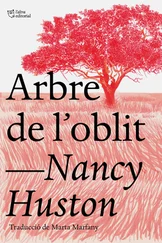“Change names. Change countries. Change selves.”
Yeats leafs rapidly through Neil’s manuscript of poems.
“Forget these. They were written before the Rising, by a bright young lad all puffed up with ambition but empty of wisdom. Then the British savaged our city and shot our sixteen leaders; your cousin Thom was killed before your eyes; Dublin’s finest buildings burned to the ground; the poor came wailing out of their houses. . and
all changed, changed utterly.
A terrible beauty was born.
. . I believe you now have an inkling of what wisdom might be, or at least where to look for it. Am I correct?”
“I hope so, sir.”
“Then go. Go to England. Or, better still, to the Americas.”
“But our cause? The national cause of Ireland and Irish freedom, for which Thom and so many others gave their lives?”
“Don’t worry. Events will follow their course. You won’t forget the cause. May I read you a few lines from one of my recent poems? I have it in manuscript only; it may be years before Ireland is ready to read it. It’s called ‘The Leaders of the Crowd.’”
(Jaysus, I don’t know, Milo. Are you sure? The whole feckin’ poem, as the Irish would say? That’s the schmaltzy side of your personality, nice in real life, but disastrous in art. . Whoa, okay, don’t have a conniption fit. . you’ve got your poem! As Lambert Wilson reads it out loud, we can go wafting out the open window and hurtle through the sky of County Galway with the wild swans. .)
They must to keep their certainty accuse
All that are different of a base intent;
Pull down established honour; hawk for news
Whatever their loose phantasy invent
And murmur it with bated breath, as though
The abounding gutter had been Helicon
Or calumny a song. How can they know
Truth flourishes where the student’s lamp has shone,
And there alone, that have no solitude?
So the crowd come they care not what may come.
They have loud music, hope every day renewed
And heartier loves; that lamp is from the tomb.
. . Do you understand, Kerrigan?”
“It’s not easy to grasp at first hearing, but I think I get the gist of it, sir.”
“The most important lines are these:
How can they know
Truth flourishes where the student’s lamp has shone,
And there alone, that have no solitude?
. . Remain a student, Neil. Protect thy solitude. And keep thy lamp shining.”
“Why is the lamp said to be from the tomb ?”
“Where will you find wisdom, Kerrigan, if not in the words of dead men?”
“In the arms of living women?”
William Yeats bursts out laughing.
“Ah, you’re a lad after my own heart! Here. . Allow me to give you one of my books.”
He picks up a copy of The Wind Among the Reeds and writes in it.
For Neil Kerrigan. May he not follow in the faltering footsteps of this aging bard, but blaze his own young virile path with words, carving momentary meaning out of the rich dark nothing that surrounds us all. W. B. Yeats, 16 September 1917.
BLACKOUT.
• • • • •
Awinita, June 1951
RADIO MUSIC. . A vague gurgle of babbling, squabbling girls. . The camera explores the home Awinita shares with a dozen other prostitutes in their late teens and early twenties, some native, some not — a run-down ground-floor apartment somewhere on the Plateau Mont-Royal. Burlap curtains on the windows are permanently drawn to discourage neighborly curiosity.
Arriving in the kitchen, the camera discovers Liz, a buxom, fortyish brunette dressed in a yellow pantsuit, sitting smoking at the table. She runs the place, and all the girls who work for her know that Friday is accounts day. Before her are a ledger and a cashbox; coffee percolates on the stove nearby. In various states of dress and undress, the girls file in one by one, sit down across from her and hand her their weekly earnings. Licking a finger, Liz carefully counts the bills into her cashbox, inscribes the amount in the ledger, deducts what the girls owe her for rent, clothing and drugs, and hands them back the difference.
Awinita wanders woozily into the kitchen dressed in a cheap black satin kimono, her pregnant tummy now at full ripeness. The world wobbles and blurs before her eyes. The envelope she hands Liz seems almost weightless. The procuress peers into it and frowns.
“What’s this supposed to be? I hope this isn’t supposed to be your rent money, Nita. . You already owe me. . ah. . seventy-four bucks in back rent, to say nothing of the advances I’ve made you. . Ten for clothing. . twenty for medication. . that brings us to a grand total of one hundred and four. I’ve told you before, Nita, this isn’t a charity operation.”
“De guys,” Nita says in a low voice, “. . dey scared to go up with me. Dey scared sometin’ could happen while dey up dere.”
“When are you due?”
“Any day.”
“Okay. . And your plan is to give up the baby?”
“Yeah.”
“At once?” “Yeah.” “So you think you could be back at work when?”
“Like a week or two.”
“Okay, listen. You know, I don’t mean to be hard on you, Nita, but I’ve got my books to balance. One more week of credit is all I can give you. Either you catch up on your debts or you find someplace else to live.”
“Sure.”
“All right. One more week’s delay for the rent. Think you can do without your pills this week?”
“I need ‘em.”
“At least try to cut down, for your baby’s sake. Let me give you half the usual amount, that way you won’t be tempted.”
“Gimme the pills. . I’ll try and cut down myself.”
“Price of diazepam went up to twelve bucks last week.”
As Liz inscribes her new debt in the ledger, Awinita virtually wrenches the tube from her hand.
CUT to the bathroom, where she gulps down a pill and stands waiting for it to take effect.
We find her on her mattress in a corner, snoring softly, as Deena, Cheryl and Lorraine paint their fingernails and chatter up a storm.
CUT to a few hours later. The quality of the light has changed. The other girls have left. The bedroom floor is strewn with underwear, balled-up tissue papers, candy wrappers, twisted nylon stockings and half-spilled ashtrays. . Alone on her mattress, Awinita has her first contraction. She calls out to her mother in Cree.
Subjective camera: we stare up at the roof of the ambulance beyond the mountainside of our stomach. In our peripheral vision, city lights flash by unevenly. Sound track: siren wail, muttered exchange between two male orderlies in the front seat and, occasionally, our own deep, wrenching groans.
CUT to the emergency room of a large Montreal hospital. We’re giving birth. The world is rendered blurry and fantastic by our pain. Flustered nurses cluster around us. (All or nearly all of them would be nuns — right, Milo, in Montreal in 1951?) Their hands on and in our body are ungentle, and their words no less wounding for being prudishly spelled out.
“Another Injun b-a-s-t-a-r-d .”
“I’ve seen a dozen this past month, if I’ve seen one!”
“They’ve got no future, God bless ‘em. You almost feel like putting them out of their misery before it begins.”
“The ways of the Lord are unfathomable, Sister Anne.”
“She’s giving it up for adoption?”
“Yes. Doesn’t even want to see it.”
“How hypocritical can you get? Doesn’t make what she did any less of a sin.”
“Maybe she was r-a-p-e-d ?”
“How would I know?”
Читать дальше












